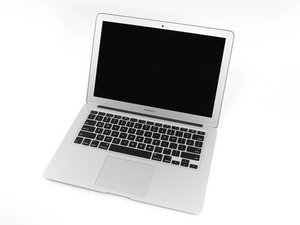Crash every few minutes with flickering patterns on screen
I have an old Mid-2012 MacBook Air which some years ago started developing a problem that it would freeze, with a flickering blocky pattern on screen for a while, and then shut down.
At first this was only occasional, but has grown more frequent with time. Now it won’t stay running for more than a few minutes. It seems to stay on a bit longer when started for the first time with everything cold.
This doesn’t seem to be related to system load though, and also happens at an idle recovery screen with no actual OS running. I have tried resetting nvram/smc. Incidentally, the same has happened a few times on a windows laptop in the family, and I’ve seen a picture of the exact same problem on stackexchange (unfortunately did not bookmark the question).
I think the most obvious common factor would be the cpu (or, possibly, a flaw in support circuitry following the same reference design) – or the integrated gpu more specifically. It seems unlikely that e.g. memory corruption could cause the exact same symptoms on this many different systems.
Has anyone encountered and been able to fix this issue? How likely do you think this could be heat related? Should I try to reapply thermal paste? Or anything else I could do?
At this point I’m mainly interested to make it stable enough for a local trade-in campaign, and ideally long enough to be able to wipe the disk and reinstall MacOS first.

-----
UPDATE:
I changed the thermal paste. There was plenty of it, completely caked, which still did not cover the entire cpu die. It can't ever have made very good thermal contact.
Unfortunately, the problem was not solved (I would say not even improved).
The heat pipe seems ok, or at least I could not see any sign of damage or leaking. The fan works. The cpu end of the heat pipe is only mildly warm when the crash happens, so this does not seem to be a cpu heat issue after all.
I believe the SSD can be excluded as a potential cause, as the laptop will also crash when booted into recovery mode. At that point everything is in ram, the drive can even be erased entirely. There cannot really be any such disk activity happening that would crash the system.
This is starting to look like a logic board issue, whether that be solder joints, ram, cpu power circuitry, or something else. That is beyond what's sensible to repair in a 2012 laptop, so it seems I'm out of options for any more things to try.
crwdns2934109:0crwdne2934109:0

 1
1 
 338
338  974
974